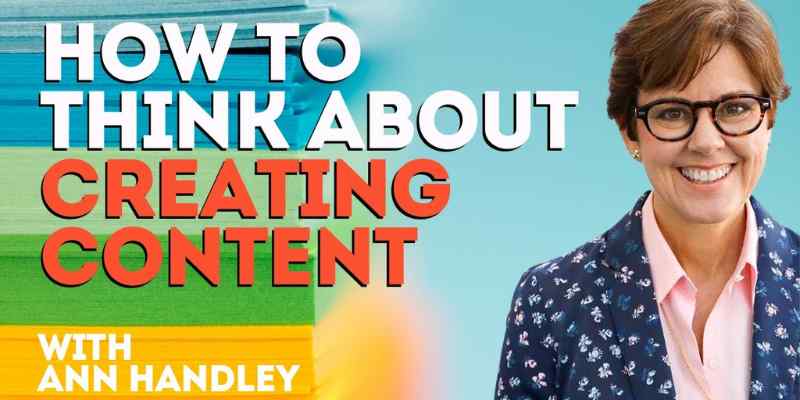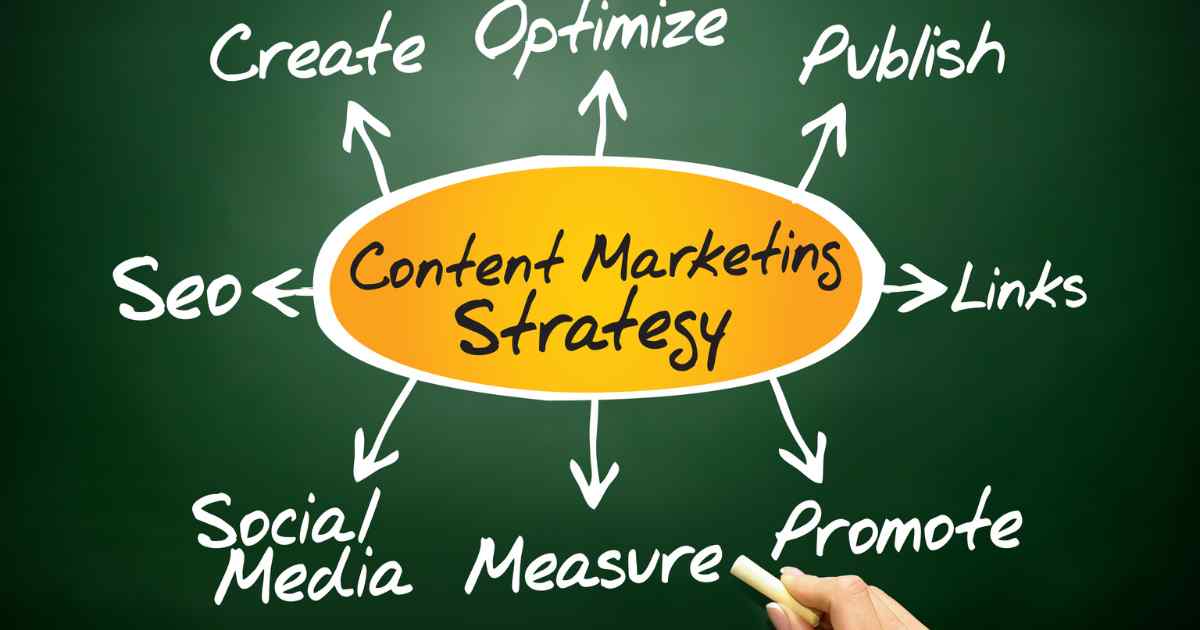Are you struggling to get traction with your online content?
You’re not alone. In 2022, a report showed that 63% of businesses don’t have a documented content marketing strategy.
Without a strategy, you’re in the dark.
You might be wasting resources. Your message might not reach your ideal audience. Even worse?
Your competitors are probably capitalizing on what you’re missing out on.
Enter the world of content marketing strategy.
It’s your game plan. It tells you what to say, how to say it, and where to say it.
It’s a roadmap, leading your brand through the noisy maze of the internet. And its importance?
Immense.
In this digital era, content is king. But a king without a strategy? Vulnerable.
Dive into this guide and arm your brand with a solid plan.
Let’s demystify this. Let’s harness the power of content. Ready? Let’s go.
Understanding Content Marketing

Content marketing isn’t new. Think back. Benjamin Franklin published the “Poor Richard’s Almanack” in 1732. Why?
To promote his printing business. But let’s fast forward.
In 1996, Bill Gates proclaimed, “Content is king.”
He wasn’t wrong. Today, 91% of B2B marketers use content marketing to reach their customers.
But what’s changed?
Platforms. Tools. Audiences. They’ve evolved.
Our stories now sit on websites, float across social media, and pop up on YouTube.
Content adapts. We, as marketers, should too.
Difference Between Content Marketing and Traditional Marketing

Imagine a billboard. It shouts a message, right?
That’s traditional marketing. It’s interruptive. It’s loud.
Now, think of a helpful blog post you read last week. That’s content marketing. It’s inviting. It’s valuable.
Traditional marketing tells the world you’re a rock star.
Content marketing shows the world that you are one.
A Harvard study show, 70% of consumers prefer to learn about a company through articles rather than ads. Why? Trust. They want value, not sales pitches.
In essence, traditional marketing buys your attention. Content marketing earns it. The difference? Clear as day. Choose wisely.
Core Components of a Content Marketing Strategy
Here are some of the core components of content marketing strategy that makes it a real deal for any business:
Audience Targeting
- Identifying Audience Personas
Who are you talking to? It’s not just “everyone.”
Maybe it’s Steve, the tech-savvy millennial, or Barbara, the busy mom.
In 2019, businesses that nailed their audience personas achieved 73% higher conversions.
Get specific. Know their pain points. Address them.
- Mapping Audience Journey
Every customer travels a path. Awareness. Consideration. Decision.
Understand this journey. Where do they pause? What sparks interest?
Your content should guide, not push.
Content Creation
- Content Types
You’ve got options.
Blogs tell stories. Videos engage. Infographics simplify. Podcasts inform on-the-go.
In 2020, 85% of businesses used video as a marketing tool.
Why? It connects. But always ask: What format best serves the message?
- Quality and Relevance
Write well. Write with purpose.
A survey revealed that 78% of consumers trust brands that produce custom content.
But there’s a catch. It must resonate. It must help. Quality over quantity. Always.
Distribution Channels

- Owned Media
Your platforms, your rules. Websites are home base. Email newsletters?
Personal invitations to your audience. Take control. Deliver value.
- Earned Media
Others vouching for you. Think guest posts on respected sites.
PR mentions. They’re golden. They amplify your reach and build trust.
- Paid Media
Ads, sponsored posts, PPC. They speed things up.
64% of people say they click on Google ads when shopping online.
But remember, paying to play demands a clear strategy. Spend wisely.
Performance Metrics
Metrics matter. They’re your compass. Track engagement. Monitor conversions.
Measure brand awareness.
In 2021, businesses that consistently checked their KPIs were 3x more likely to hit their goals. Numbers don’t lie. Check them. Adjust. Improve.
A winning strategy? It’s not just one thing. It’s all these components, working together, telling your brand’s story. Make each one count.
Developing a Content Marketing Strategy by Ann Handley

1. Defining Clear, Measurable Objectives
What’s the endgame? Maybe it’s boosting web traffic by 20%. Perhaps it’s doubling newsletter subscribers. By 2021, a staggering 79% of marketers who set clear objectives outperformed their peers. The lesson? Know your goals. Write them down. Chase them.
2. Evaluating Current Content Strengths and Weaknesses
Grab a magnifying glass. Dive into your content. What’s working? Celebrate it. What’s not? Fix it. An analysis showed that brands optimizing existing content saw a 50% lift in engagement. It pays to look back.
3. Identifying Content Gaps
There’s always a missing piece. An unanswered question. A topic untouched. In 2020, 65% of top-performing marketers regularly reviewed and filled content gaps. Stay curious. Stay complete.
4. Scheduling Content for Consistency
Random acts of content? Not on your watch. Consistency builds trust. And trust? Priceless. Brands posting regularly saw a 67% increase in customer engagement in 2021. Plan ahead.
5. Adapting to Holidays, Industry Events, etc.
Your audience celebrates. They attend events. Your content should mirror their lives. Christmas deals? Got it. Industry conference insights? Share them. Reflect their world. Be relevant.
6. Collaborative Approach
Marketing isn’t a solo sport. It’s a team game. The designer crafts visuals. The writer spins stories. The marketer drives strategy.
A survey in 2022 revealed that collaborative campaigns outperformed solo efforts by 60%. Pool talents. Achieve greatness.
Crafting a strategy isn’t just ticking boxes. It’s laying the groundwork for meaningful, impactful content. It’s setting the stage for success. So, strategize smartly. And watch your brand soar.
Execution and Management

Once you are all set by devising a solid strategy, the next step is execution.
1. Consistent Branding and Voice
Your brand is a person. It speaks. It feels. Ensure it’s consistent. In 2022, 89% of companies reported that consistent branding led to increased revenue. So, every blog post, every tweet—make them unmistakably yours.
2. Outsourcing vs. In-House Creation
There’s no one-size-fits-all here. Outsourcing brings fresh eyes. In-house brings deep insights. But note this: 68% of brands that tailored their choice per project saw better results. Adapt. Decide. Thrive.
Content Distribution
Creating a content is not sufficient, distributing it through effective channels hold equal importance.
1. Utilizing Multi-Channel Approach
Fish where the fish are. Your audience? Scattered. On Instagram. Reading blogs. Watching YouTube. Brands utilizing a multi-channel approach in 2021 saw a 137% higher engagement rate. Be everywhere. But be strategic.
2. Adapting Content for Each Platform
A blog isn’t a tweet. A LinkedIn post isn’t an Instagram story. 74% of marketers who tailored content per platform boosted conversions in 2022. Mold the message. Make it fit.
Community Engagement

Once you distribute the content, it is important to engage with your target audience to stand out in the ocean of content.
1. Interacting with Audiences
Talk. But more importantly, listen. Engage. Respond. A study revealed that brands actively engaging with their community witnessed a 45% lift in customer loyalty. Relationships matter. Cultivate them.
2. Gathering Feedback for Improvement
Your audience knows best. They’re your compass. In 2020, 83% of brands that acted on audience feedback improved content performance. Hear them. Adjust. Shine brighter.
Continuous Monitoring and Optimization

Like SEO, Content has its performance metrics too! If you wonder how to measure the content performance, here we go:
1. Tools for Tracking Performance
Data is gold. Dig into Google Analytics. Scan social media insights. In 2021, 92% of top-performing marketers relied heavily on data analytics. Decisions driven by data? They rarely falter.
2. Adapting Strategy Based on Insights and Changing Trends
The digital world swirls. New platforms rise. Old tactics fade.
A fact: Marketers agile enough to pivot in 2022 achieved 55% better ROI. Stay alert. Evolve. Win.
In content marketing, execution is where the rubber meets the road. Plan well, but act brilliantly. With precision, passion, and persistent evaluation, that’s how legends are made.
Challenges and Solutions in Content Marketing
Here are some challenges that often content marketer come across while devising an effective content marketing strategy:
1. Over-Saturation in the Digital Space
It’s crowded out here.
Every day, 4.4 million blog posts are published. Brands shout. Audiences drown.
Cutting through? It’s a Herculean task.
2. Changing Search Engine Algorithms
Just when you think you’ve got Google figured out, it zigs while you zag.
In the past two years alone, there’ve been over 3,200 algorithm changes.
Predictability? Out the window.
3. Keeping Up with Emerging Platforms and Technologies
TikTok. AR. VR. New platforms. New tools.
They sprout overnight. For marketers, it’s a race. Catch up or get left behind.
Solutions To Combat Challenges
Here are some suggested solutions if you are struggling with any of the challenge above:
1. Staying Updated
Knowledge is your sword. Dive into industry news.
Follow thought leaders. Join webinars.
In 2022, brands actively staying updated saw a 72% better adaptation rate to market changes.
2. Continuous Learning
Never stop. Courses. Books. Workshops. The marketers of tomorrow?
They’re the learners of today.
Brands committed to continuous learning in 2021 reported a 63% uptick in marketing effectiveness.
3. Agility in Approach
Stay nimble. Test. Iterate. Ditch the “that’s how we’ve always done it” mantra.
Agile brands in 2020 enjoyed a 54% faster response time to market shifts.
In content marketing, challenges are constants.
But here’s the silver lining: So are solutions.
Navigate the digital maze with awareness, education, and agility.
After all, challenges? They’re just opportunities in disguise.
Case Studies

Here are some case studies that will help you to understand the importance of content marketing:
1. The Financial Sector: American Express’s ‘OPEN Forum’
Background: The credit card giant aimed to assist small business owners, not just through finances but knowledge.
Strategy: They created the OPEN Forum, an informational hub with articles, advice, and insights tailored for small business needs.
Result: This platform positioned American Express as a thought leader, deepening trust with existing customers and attracting new ones. Web traffic and card sign-ups surged.
Key Takeaway: Content marketing can be more than selling a product; it can be about enriching a community.
2. Health & Fitness: Nike’s Training Club App
Background: In a market flooded with fitness apps, Nike aimed to stand out.
Strategy: Instead of just tracking workouts, the Nike Training Club offered free workout plans, guidance from experts, and personalized training regimes.
Result: Millions downloaded the app, leading to increased brand loyalty and an uptick in sales for Nike workout gear.
Key Takeaway: Provide tangible value and solutions to common problems your audience faces.
3. Food & Beverage: Tasty by BuzzFeed
Background: BuzzFeed identified a rise in visual-based content consumption.
Strategy: “Tasty” was born—short, visually appealing cooking videos optimized for social media.
Result: Massive virality. The quick, easy-to-follow recipes resonated with millennials and Gen Z, leading to millions of shares and a significant boost to BuzzFeed’s brand recognition.
Key Takeaway: Understand platform-specific content needs and adapt to the changing preferences of your target demographic.
4. Technology: HubSpot’s Educational Blog
Background: HubSpot, a CRM platform, recognized the need for businesses to understand inbound marketing.
Strategy: They launched a comprehensive blog, offering how-to guides, industry insights, and free tools.
Result: HubSpot didn’t just sell a platform; they educated a market. The blog positioned them as an industry leader, driving both platform sign-ups and inbound marketing adoption.
Key Takeaway: Education can be a potent tool in content marketing. Equip your audience with knowledge, and they’ll come to you for solutions.
Diverse industries. Varied approaches.
But one underlying theme: Successful content marketing hinges on understanding, addressing, and anticipating audience needs.
These stories aren’t just success tales—they’re roadmaps for others to follow.
Future of Content Marketing

As we stand on the cusp of the next decade, the content landscape continues to evolve, driven by technology, consumer behavior, and a relentless pursuit for authenticity.
Let’s gaze into the crystal ball and see where we’re headed.
Predicted Trends
Here are some predicted future trends in content marketing:
1. Rise of Voice Search
With the proliferation of smart speakers and voice-activated tech, optimizing for voice search will be non-negotiable.
By 2025, it’s projected that 50% of all online queries will be voice-based. Brands must learn to “speak” to their audience, quite literally.
2. Immersive Technologies
Virtual Reality (VR) and Augmented Reality (AR) aren’t just for gaming. Imagine touring a hotel room before booking or “trying on” clothes virtually.
By 2024, the AR/VR market is predicted to reach $300 billion, offering brands new dimensions to engage.
3. Emphasizing Authenticity and User-Generated Content
In a digital age of filters and façades, raw authenticity will reign supreme.
Brands that can showcase real stories, unscripted moments, and genuine testimonials will resonate deeply.
Consider this: 90% of consumers trust user-generated content over traditional advertising. That trust? It’s golden.
Integration with Emerging Tech

In this era of Artificial Intelligence, even content marketing is not untouched:
1. AI-Powered Personalization
Enter a website and see content curated just for you. Sounds futuristic? It’s now.
Artificial Intelligence (AI) will drive hyper-personalized experiences, ensuring content resonates on a one-to-one level.
By 2026, it’s estimated that businesses employing AI-driven content personalization will see a 20% boost in customer engagement.
2. AR/VR Storytelling
The line between reality and digital will blur.
Brands will weave stories in a 360° space, allowing consumers to “step into” their narrative, reshaping the very essence of brand storytelling.
3. Interactive Content with IoT
The Internet of Things (IoT) will redefine interactive content.
Picture your smart fridge suggesting recipes based on its contents, or your fitness tracker recommending workouts.
Content will become smarter, more intuitive, and seamlessly integrated into daily life.
In the end, technology will continue to shape and shift the content marketing landscape.
But one thing remains unchanged: the heart of content is connection.
No matter how advanced we get, the brands that truly understand, value, and foster human connection will thrive in the future landscape.
Conclusion
In the ever-evolving realm of content marketing, a strategic approach is your North Star.
It’s not about jumping on every trend but understanding your audience, crafting messages that resonate, and ensuring they’re seen.
As we’ve explored, from the roots of content marketing to its exciting future, the landscape is diverse and dynamic.
Remember, at its heart, content marketing is about connection. And in a world brimming with content, authentic, strategic, and relevant content will stand out.
As the digital age races on, let’s not just keep pace—let’s lead the way.
Continuously adapt, grow, and remember: every piece of content is an opportunity to connect, inspire, and leave a lasting impact.
Onward to a future filled with compelling narratives and innovative strategies!
If you need help with a customized content marketing strategy, Banter Marketo is just a click away!









